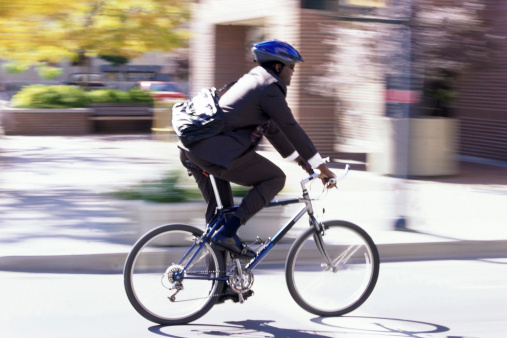The San Diego City Council recently approved a bike share initiative that will bring 1,800 bikes to the city by 2014.
The 10-year contract, which was signed with DecoBike, will provide between 180 and 220 self-service bike kiosks for public use at no cost to taxpayers. To make room for these kiosks, a number of parking meters will be eliminated in the city—a decision city officials have deemed a fair trade.
The kiosks will be solar powered and the bikes will have a front storage basket, self-generating LED lights and reflective spokes, and tires for night safety.
Councilman David Alvarez said the program is a part of a larger plan to make San Diego friendlier to cyclists.
“Bike sharing is a natural extension of our city’s commitment to bring better bicycle infrastructure to San Diego,” Alvarez said. “From building more bike lanes, to investing in bike safety, to promoting public transportation, bike sharing fits right in.”
Andy Hanshaw, executive director for the San Diego County Bike Coalition, said the program will have a positive impact on the community, encouraging people to be more active and eliminating some of San Diego’s traffic congestion.
“I think it’s a game changer for bicycling and the way bicycling is used for transportation in our region,” Hanshaw said. “It’s been shown to be very impactful in other cities across the country.”
DecoBike sharing programs are already functional in Long Beach, New York and Florida. Users in other cities have logged more than 2,600,000 trips using the bikes, DecoBike’s chief marketing officer Colby Reese said. Reese said bike sharing provides a reasonable method for transportation.
“It’s one of the easiest ways to get from point A to point B without the headaches of owning, storing and maintaining your own bike—or car,” Reese said. “Bike sharing has proven to be highly cost effective and efficient on a variety of fronts.”
Co-director of the SDSU Sustainability program Trent Briggs said automobile transportation is one of the main producers of greenhouse gases. Briggs said utilizing alternative methods of transportation, such as bikes, provides a viable solution for combating carbon emission, but he proposed a movement toward sustainability on a larger level.
“By having simple sustainability more prominently occurring throughout an urban area, you can raise its profile and raise awareness,” Briggs said. “Hopefully this will be part of a fleet of activities that the city is going to take to enhance the bikeability in San Diego. If there’s any city that should be able to reduce carbon emissions through bike usage, it’s San Diego.”
Several SDSU students expressed their support for the new bike share initiative and said they would use the program when traveling downtown.
SDSU education graduate student Robert Isambert said he would use the bike sharing program to save money and eliminate the hassle of fighting for parking downtown.
“I think it would be a good idea that would save a lot of people gas money,” Isambert said. “It would also be green and cut down on traffic.”
Bikes will be offered free for the first half hour or for $15 per day to members. The option to purchase a $20 monthly membership, or a $99 annual member pass will also be available, according to DecoBike. Non-members will have the ability to rent a bike for $4 for 30 minutes, or for $7 an hour. The program will also be funded through sponsorship from various corporate groups, Hanshaw said.










